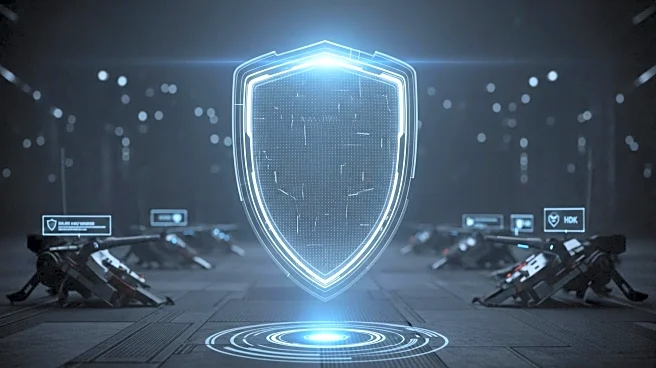What's Happening?
Activision is intensifying its efforts to combat cheating in its popular Call of Duty series, specifically targeting cheaters in the upcoming Black Ops 7. The company has introduced new anti-cheat measures, including in-game mitigations that disrupt cheaters by making their weapons disappear or causing their vehicles to explode. These actions are part of a broader strategy to identify and ban cheaters, with over 55,000 cheaters disrupted in August alone. The RICOCHET anti-cheat tools are currently being tested during the Black Ops 7 beta, with full implementation expected at the game's launch on November 14. Additionally, Activision has addressed concerns regarding the transferability of skins from Black Ops 6, confirming that a select few zombie skins and operators will be available in the new game.
Why It's Important?
The implementation of advanced anti-cheat measures by Activision is crucial for maintaining the integrity and fairness of gameplay in the Call of Duty series, which is a significant revenue generator for the company. Cheating not only undermines the gaming experience for legitimate players but also poses a threat to the game's reputation and player base. By actively disrupting and banning cheaters, Activision aims to enhance player satisfaction and loyalty, which are essential for sustaining its competitive edge in the gaming industry. The move also reflects a broader trend in the gaming sector, where companies are increasingly investing in technology to combat cheating and protect their intellectual property.
What's Next?
As Black Ops 7 approaches its official launch, Activision is expected to fully deploy its anti-cheat systems, including the RICOCHET tools, to ensure a secure gaming environment. The company will likely continue to refine its detection and mitigation strategies to adapt to evolving cheating tactics. Players and stakeholders will be watching closely to see how effective these measures are in practice and whether they lead to a noticeable reduction in cheating incidents. The success of these initiatives could influence future anti-cheat strategies across the gaming industry.
Beyond the Headlines
The ethical implications of cheating in online games extend beyond the immediate impact on gameplay. Cheating can foster a toxic environment, discourage fair competition, and erode trust within gaming communities. Activision's proactive approach to combating cheating highlights the importance of ethical standards in digital entertainment and the role of technology in enforcing them. This development may prompt discussions about the balance between privacy and security in gaming, as anti-cheat measures often involve monitoring player behavior and data.









